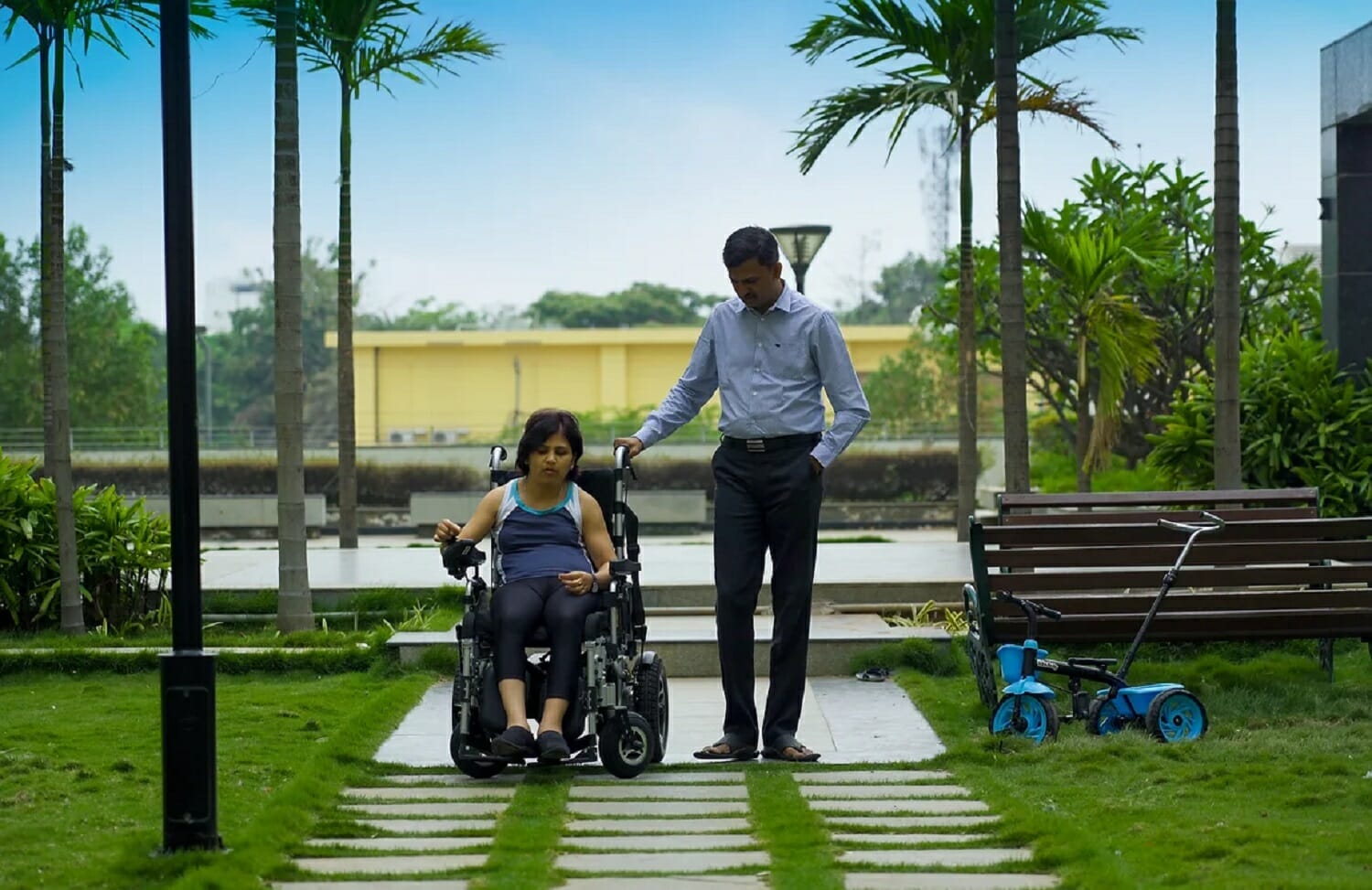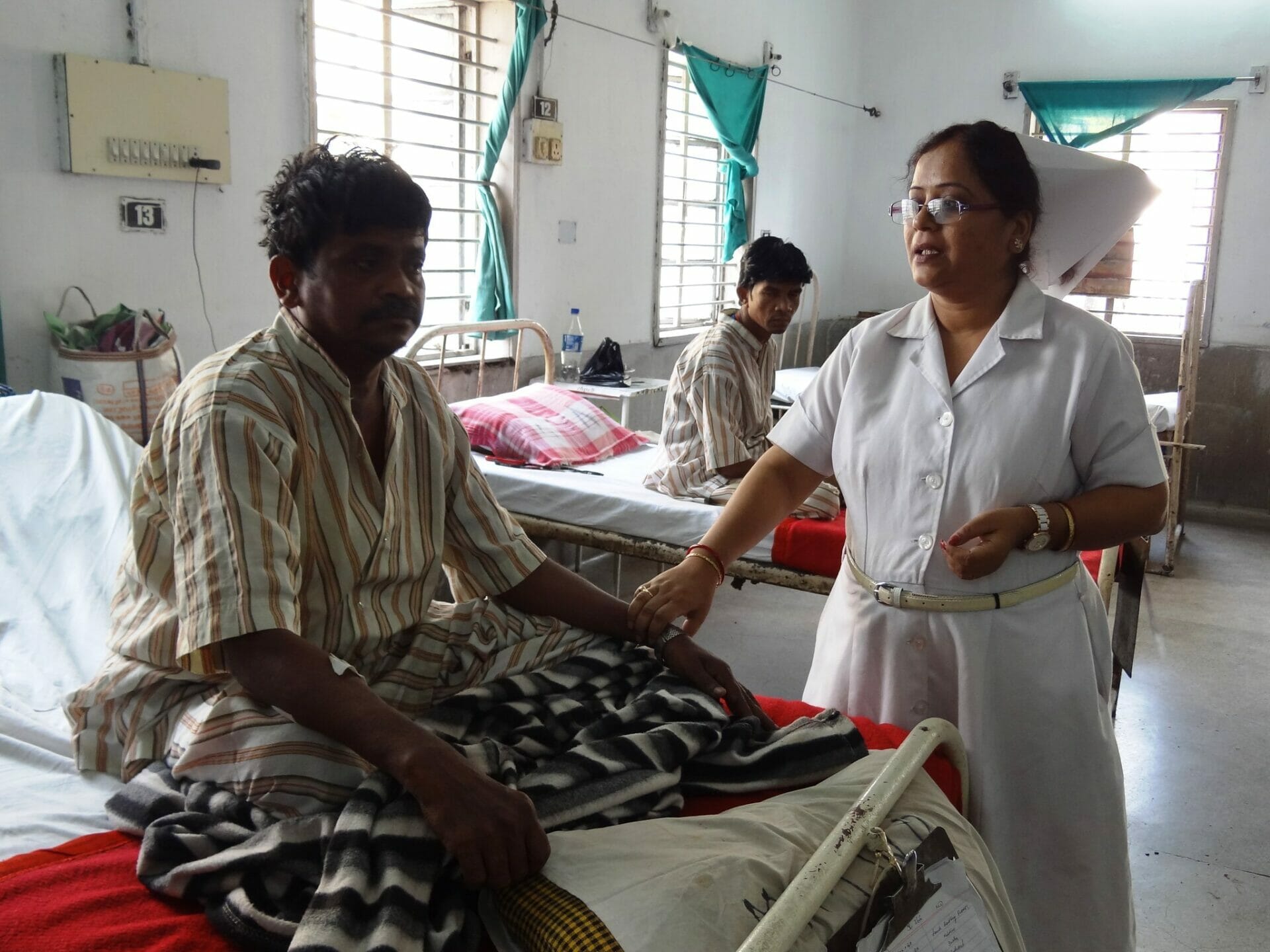When her relationship began to disintegrate, Sara 38, withdrew from the world and began to suffer from backaches and vertigo. “Now, I tend to cry onto my pillow,” says Sara. “There is no point in sharing anything with the person who will merely blame me for everything.”
In recent years, there has been a sharp increase in the number of young and older adults knocking at the doors of psychologists and Happiness Coaches. And it is not just a big-city phenomenon.
“I belong to Jaunpur, a small city in Uttar Pradesh, where I see people living in their shells,” says Neuro-Linguistic Programming (NLP) therapist and Happiness coach, Rithwick M Singh. “It is more common among women but they have internalised loneliness. They think it is a natural way of living. Whereas in larger urban areas, irrespective of gender, they access help and express themselves.”

Whether one lives in a nuclear family or a joint family set-up has become irrelevant. Even in joint family settings, people are busy in their own world and have little time for meaningful social interactions. “I feel lonely,” says Neeraj from Bangalore in an online workshop on Loneliness, organised by Swayam Foundation, Delhi. “I always get the feeling of being judged”.
Today, the home has become a place where people return to sleep, have food and then get glued to their respective TV or computer screens. They have minimal interaction with each other.
Read more: Mental illness a ticking time bomb, say experts
“Something has changed, shifted,” says psychologist Dr Sujatha Sharma. “People are grappling with their choices and relationships. They feel lonely because bonding has become too fragile.”
According to psychologists, people feel lonely in relationships and with friends as they are unable to be themselves, express their true feelings or have meaningful conversations. And in recent times, this loneliness syndrome is increasing.
“Loneliness is emotional and mental isolation,” says Dr Sujatha. “It is a state of mind. It is derived from need – the need to talk, share and connect.”

Pic courtesy: Sujatha Sharma
Every relationship is different and if there is a feeling of loneliness then maybe it’s the wrong match. “If partners do not show their vulnerabilities then the edifice of the relationship is not based on honesty and truthfulness,” explains Dr Sujatha. “It impacts the relationship where often they begin to feel lonely and imagine themselves to be caught in a trap.”
Together, yet not together
There are times when people are not together, even though they are living under the same roof. “Though I am married, and have my coaching business yet I am miserably lonely for the last 25 years,” says 58 year-old Rashmi, a Delhi resident. “I am frightened of having an existence where there is no relationship with another, no sense of communication. To ease my loneliness, I go to temples, do gardening and have pets – six dogs and a parrot. I talk to them.”
Rashmi’s loneliness is there with her all the time. As she explains, “that feeling of being alone or lonely is there even while putting up a show in front of the family. It is not a loneliness that creeps up and puts a hand on my shoulder, suddenly. It is not the type of loneliness that washes over me at night. I experience a constant feeling of isolation and loneliness. It is the loneliness that arrests the blood flowing to and from my heart when I tend to share my deepest feelings because in return there’s only blame and insults.”
Rashmi has often thought about breaking the relationship but just couldn’t. So she invested her emotions elsewhere even while putting up a show of togetherness at a party.
Loneliness is a subjective expression. “One may live in a joint family and be lonely while on the other hand, one may be living alone but is not lonely,” according to Dr Sujatha. “Loneliness is a state of mind. It depends upon the connection that one has with others.”
Every day Dr Sujatha gets three-four clients complaining about being lonely in their relationships or experiencing no connection with their parents.
Youth more affected
More and more youngsters seem to feel disconnected. “I have stopped sharing my feelings with my parents as I know they will not understand,” says 25-year-old Aadil. He has done a course in Psychology and is searching for a job in the social sector. His parents always judge him. They are critical of his actions. As a result, he says, “I have stopped communicating with them. What is the point if they are always critical of my actions and do not understand me?
“Sometimes, even my friends do not understand me. I feel lonely and this makes me seek more attention and in the end, I feel more lonely.” Aadil’s mother, however, is dismissive of his feelings. “He has always been like this,” she says. “He is moody.”
Often, loneliness is considered to be an offshoot of a ‘mood’ swing, a transient feeling. “But the fact is that it is a pervasive state and makes one feel isolated,” says Rithwick. His happiness coaching sessions have youngsters and middle-aged couples searching for peace and real emotional connection with parents and friends.
A global issue
In the Western world, doctors and civil society have shown their concern. They have initiated campaigns to combat it and several research studies are being conducted. Some time back an American non-profit organisation, the Kaiser Family Foundation, conducted a study and found out that 22% in America, 23% in Britain and 9% in Japan suffer from loneliness. No such study has been conducted in India so far.
Psychotherapists and life coaches here agree that the problem of loneliness has increased in India and conducting research on loneliness should be taken up on a priority basis. “Though it is difficult to measure an emotion, as it is not like any physical ailment,” says Dr Sujatha.
Loneliness and mental health
Loneliness affects mental health and a range of medical conditions like heart ailment, strokes, Alzheimer’s/dementia, obesity, diabetes and substance abuse. One of the reasons for the increase in deaths by suicide is loneliness.
Loneliness leads to ill health and vice versa. One may feel lonely because of a disability, depression, the death of a partner or even, as a caregiver.
Says Mili, caregiver to her husband who has multiple sclerosis: “To be a caregiver is very hard. I am not able to progress in my life. Just when I get any momentum, something or the other happens with him. I drop everything, because how can you not help what’s happening in the same house? I feel hopeless, alone, lonely but I cannot share my feelings with my family.”
Like any other mental health issue, loneliness too carries a stigma attached to it. According to Julianne Holt-Lunstad, a psychology professor at Brigham Young University, people generally do not accept being lonely as there is a social stigma of pathos associated with it and it hurts self-esteem.
She further writes in her paper (link given below) that “loneliness and social isolation are risk factors for coronary heart disease and stroke.” Lunstad is the first U.S. researcher to publish an analysis of studies connecting inadequate social support as a major contributor to morbidity. Her 2015 study involved 3.4 million participants. She concluded that loneliness can lead to a 30% increased risk of premature death.
Researchers say that loneliness carries “the risk of smoking 15 cigarettes a day and is twice as harmful as obesity and as lethal as alcoholism.”
LGBTQ and loneliness
Loneliness does not discriminate on the basis of age, gender, region, caste or sexual preference. The socio-cultural norms and unwritten moral ethics often discriminate against and label a person if one belongs to the LGBTQ group.
“Society does not permit me to share my sexual preference,” says Astha (name changed on request) who stays with her partner in Gurgaon. She regularly visits a psychotherapist. “My parents do not understand me. I feel alone and isolated. My nervous system is buckling under the pressure of loneliness.”

Psychotherapists who specialise in Queer-Affirmative Therapy feel that socio-cultural norms prevent families from accepting reality. “In a heteronormative society, queer folx (a gender-neutral word that includes members of the LGBTQ community) often experience social isolation,” says psychotherapist S Shrinkhla (Delhi) who specialises in Queer-Affirmative Therapy and Trauma-informed care and grief therapy.
“They feel a deep sense of loneliness where they are struggling with discrimination at various levels, and may not be able to share even with those they are close to. They are forced to live a double life as their families and society stigmatise them.”
Queer-Affirmative counselling has become an important approach to minimise isolation and loneliness. “We recognise the ‘unique life stressors’ faced by a queer person and support them in moving through that, creating support systems and work towards psychological immunity and self-acceptance,” therapist Shrinkhla adds.
Read more: Myths and realities of Alzheimer’s Disease in urban India
Quite often the blame for a disassociation with family members is put on technology. Social media and smartphones are blamed for a lack of communication and loneliness. Psychologist Dr Sujatha Sharma disagrees.“Social media and phones connect people andcommunication helps them not to feel lonely.”
It is plausible, some psychologists feel that well-curated photos of peers make some feel that they are missing out on something. “FOMO (fear of missing out) may lead to stress, depression and loneliness,” says NLP therapist, Rithwick.
Hardly any research has been done on FOMO, social media and loneliness in India. In America, a survey was conducted in 2017 by Brian Primack, University of Pittsburgh. It was found that the extensive use of social media does aggravate loneliness as against persons using it minimally.
Programmes abroad
Globally, loneliness has been acknowledged as a serious health issue. To combat it some start-ups are devising apps and techniques to minimise the emotion of loneliness. Various charitable organisations are devising programmes, like a programme run by UK’s charitable organisation Homeshare, where two people are encouraged to share a living space.
A house owner is matched with someone who needs a place to live. In other countries like France, Netherlands and America, often students are encouraged to help people living alone in exchange for free or lesser rent.
But in India, such engagement and programmes are still to be developed. We still have to take loneliness seriously, despite all the indicators that point out its ill effects on health. Often people experiencing loneliness take to smoking or substance abuse.
Some time back I met a middle-aged woman sitting on a bench in the park. She carried a stick in one hand and with the other hand the leash of her pet. Her face appeared to be spotted and wrinkled and her shoulders droopy.
She kept looking far away in silence. “I come here to give my pet a walk,” says the woman. “I can’t imagine my life without my pet”. Just then her pet barked and pulled her. Her handbag fell, spilling the things on the pavement. Among keys, pen, and notebook there was a packet of a cigarette and a lighter. “I have no one except my pet,” she grinned, dumping back her treasures in the bag.
Unfortunately, till intensive research is conducted to assess the matrix of loneliness and its impact on the well-being of people and programmes catering to lessen the feeling of loneliness are launched, it will remain a topic to be merely discussed but without much relief.
Loneliness and the elderly
“As of December 2020, under 7% of Indians were aged 65 years and over. Current projections suggest that adults aged 60 years and over will constitute over 13% of the population in India by 2030, and by 2050, India will have over 500 million adults aged 60 and over,” as per the Longitudinal Ageing Study in India (LASI) Wave 1, 2020.
The study’s India Report by International Institute for Population Sciences, Mumbai found that 20.5% of adults aged 45 years and over in India reported moderate loneliness, while 13.3% reported severe loneliness.
Data from the 10/66 Dementia Research Group on adults aged over 65 years from one rural and one urban location in India found that 18.3% of participants reported feeling lonely.
Thus, loneliness does appear to be a significant issue among older Indians. Further research is essential in understanding loneliness in countries such as India where there is a predominantly young population at present but where the ageing population is expected to grow rapidly.
Related reading: Loneliness in Older Indian Dyads
Also read:
- How our city systems made women and girls lonelier during COVID
- Youth living in PG accommodations in Bengaluru prone to mental disorders: Study
- Mental Health: Why you and I have a critical role to play




Very well explained common experience of people struggling to cope with situations in life.